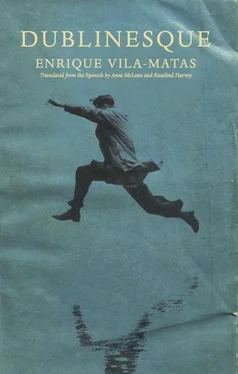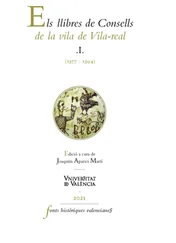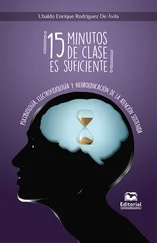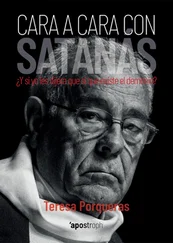On each bunk there will be at least one book, a volume that, with modern corrective treatments, will have survived the excessive dampness caused by the rains. There will be English editions of books by authors almost all published in Spanish by Riba: books by Philip K. Dick, Robert Walser, Stanislaw Lem, James Joyce, Fleur Jaeggy, Jean Echenoz, Philip Larkin, Georges Perec, Marguerite Duras, W. G. Sebald. .
And playing an undefined sort of music between the metallic bunks, there will be musicians who will be like an echo of the orchestra that went down with the Titanic but playing acoustic string instruments along with electric guitars. Maybe what they play will be the distorted jazz of the future, perhaps a hybrid style that, one day, will be called electric Marienbad .
The coexistence of the music with the rain, the books, the sculptures, the literary quotations, and the metal bunks in the exhibit — where Riba imagines, he doesn’t know why, replicas of Spider appearing, phantoms walking everywhere — might produce a strange result, as if — Dominique ends up telling him — the spectral hour had arrived and we were all walking lost among the ruins of a great disaster, in an unmistakable apocalyptic state.
He sits absorbed in front of the computer when suddenly he remembers that terrible day last week when, simultaneously sweet and ridiculous, he went for a walk at dusk, in a light rainstorm, wearing his old raincoat, his shirt with its torn collar turned up, his hideous short trousers, his hair completely plastered to his head. Car headlights were blinding him, but he carried on walking through the streets of the neighborhood, focusing on his thoughts. He was aware how strange his appearance was in the rain — mainly due to the short trousers — but also that there was no longer any solution, that it was too late now to try to put things right. He had spent hours hypnotized in front of the computer, and in a fit of lucidity, had decided to dash out into the street to get some air no matter what. He went out just as he was, in exactly the same clothes he wore around the house. Seven whole hours he had spent shut up in his study. It was actually not so much time, considering that his daily ration of confinement was usually much more extreme. But that day he had felt especially sensitive to being confined. Worried about himself and his excessive isolation, he had launched himself into the street carrying his old raincoat, but he had made the mistake of forgetting his umbrella, and then it was too late to go home, to go back upstairs to get it, and while he was at it change his trousers, so short and ridiculous under the raincoat. He must have presented a forlorn image to the neighbors, one he couldn’t even justify by explaining that, as a publisher fallen on hard times, he had an understandable touch of madness to him. For a while, as if indifferent to the rain, he could be seen advancing, phantom-like, like one of those guys who showed up in so many of the most celebrated novels he used to publish: those desperate men with a romantic air, always alone, sleepwalking in the rain, walking always along lost highways.
He has always admired writers who each day begin a journey toward the unknown, and who nevertheless spend all their time sitting in a room. The doors to their rooms are closed, they never move, and yet the confinement provides them with absolute freedom to be who they want to be, to go wherever their thoughts take them. Sometimes he links this image of solitary writers in their writing rooms with one that has been his lifelong obsession: the need to catch a genius, a young man highly superior to the others and who travels in his room better than anyone. He would’ve liked to have discovered and published him, but he didn’t find him, and it seems less and less likely he will do so now. He has never doubted the existence of this young genius. It’s just that, Riba thinks, he remains in the shadows: in solitude, in doubt, in question; that’s why I can’t find him.
Celia is sitting right beside him, and when she sees with a certain degree of alarm how completely he has sunk into self-absorption, she decides to intervene, to bring him back — as far as possible — into the real world.
“Let’s return, if you don’t mind,” she says, “to this requiem in Dublin. A requiem in honor of whom did you say?”
He is going to repeat that it is a requiem for the age of print, a funeral for one of the pinnacles of the Gutenberg galaxy, when suddenly from Ulysses, the funeral Bloom attends in Dublin on June 16, 1904, springs to mind, and he recalls the sixth episode in the book, when at eleven in the morning Bloom joins a group on its way to the cemetery to bid farewell to the dead man, Paddy Dignam, crossing the city to Prospect Cemetery in a carriage with Simon Dedalus, Martin Cunningham, and John Power. Bloom is still an outsider. Bloom, for his part, joins the group quite reluctantly, because he is aware they don’t trust him, because they know of his freemasonry and Jewishness. After all Dignam was a patriotic Catholic who boasted of his own past and that of Ireland. And moreover, he was such a good man he let alcohol kill him.
— Liquor, what?
— Many a good man’s fault, Mr Dedalus said with a sigh.
He remembers when they stop in front of the mortuary chapel. It is a sad chapel, a meditation on death, the saddest he has seen in his life. This is the gray burial of a working-class alcoholic. All the details of the cortège are described and one expects that at any moment happiness will appear in the form of a rose, an unending rose, as Borges would have said. But this happiness is a long time coming, in fact it never arrives. The process of burying the dead man is long and complex. And the grave is deep and endless, as the rose. Nothing is truer than that he has never read anything so sad as that perfectly gray chapter of Joyce’s book. In the end, tin wreaths are left hung on knobs, garlands of bronzefoil. Roses would have been better, the narrator remarks, flowers are more poetical.
“A requiem for whom?” repeats Celia.
He wants to avoid at all costs her seeing him as still alienated, or as a now permanently unhinged hikikomori , but his reply doesn’t let her see him any other way.
“For Paddy Dignam,” he says.
“For Paddy who?”
“Dignam, Paddy Dignam, the one with the red nose.”
It would have been better if he’d said nothing at all.
Before going to bed, they watch TV for a while. They catch the end of an American film, in which there is a rainy burial. Lots of umbrellas. With great satisfaction, he recognizes Woodlawn Cemetery, in the Bronx, where he went on his second and most recent trip to New York. He went to this cemetery to see Herman Melville’s grave. He recognizes it by the style of the tombstones and because the place etched itself deeply on his memory, and also because visible in the background is the elevated train station he disembarked from to visit the place. Although he sees Celia is very absorbed in the burial scene, he intervenes to say he has been to that cemetery, that he recognizes it by the train station in the background and that it is very familiar to him. Celia doesn’t know what to say.
“Are you impressed that you’re seeing somewhere I’ve been, or is the funeral scene making more of an impression?” he asks her in a somewhat provocative tone of voice.
Celia chooses to remain absorbed in the film.
He doesn’t know why he wants to go to Dublin. He doesn’t think it’s just because he’s fascinated by the idea of waiting around until June 16 to travel to a place where no one has invited him. He doesn’t believe it’s only because he thinks he should go there and then tell his parents about it, to make it up to them for not having said anything about Lyon. And nor does he believe he wants to go to Dublin simply because, if the premonition is true, it might be that he will find himself at the gateway to a great revelation about the secret of the world, a revelation that will be waiting for him in Cork. Nor does he think it’s simply because, if he goes to Dublin he will somehow get a little closer to his beloved New York, although this is another reason he wants to go there. He doesn’t even believe he wants to go to Dublin because he wishes to say a requiem for the culture of the Gutenberg age and at the same time say a requiem for himself, literary publisher very much in decline.
Читать дальше












